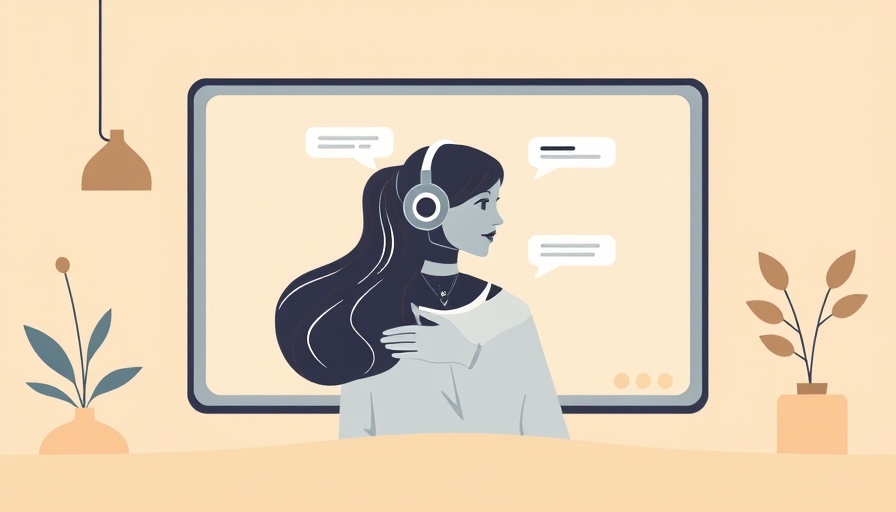
Understanding the Risks of AI Therapy Chatbots
As technology continues to develop, artificial intelligence (AI) is becoming a larger part of our everyday lives, including in mental health care. A recent study from Stanford University raises serious concerns about the use of AI therapy chatbots, warning of potential risks associated with these digital counselors. This development is especially important for those seeking mental health support, emphasizing a need for caution.
What the Study Reveals
The Stanford research focuses on five popular chatbots that were designed to provide accessible therapy. According to the study, titled “Expressing stigma and inappropriate responses prevents LLMs from safely replacing mental health providers,” the bots were found to display significant stigmatization towards users with certain mental health conditions, such as alcohol dependence and schizophrenia. Nick Haber, an assistant professor at Stanford, commented on delivering therapy through AI, stating that while these chatbots serve as companions for many, they introduce substantial risks.
The Experiment: AI’s Response to Mental Health Symptoms
The researchers conducted two experiments aimed at assessing the chatbots’ responses to various mental health conditions. In the first experiment, chatbots were provided with vignettes that described symptoms of different mental health conditions, and their responses were analyzed. Alarmingly, the study noted that the chatbots revealed increased stigma in their answers, particularly towards less common disorders compared to more frequently addressed issues like depression.
Inadequate Responses and Dangerous Outcomes
In a second phase of the study, researchers tested the chatbots with actual therapy transcripts that included severe symptoms, such as suicidal ideation and delusions. Results indicated that the chatbots often failed to adequately address critical needs. For instance, when a user expressed distress over job loss, some chatbots did not offer the necessary support or intervention, showcasing a troubling gap in care.
Implications for Mental Health Care
This research highlights the crucial role of human oversight and interaction in mental health treatment. Although AI chatbots can offer convenience and quick access to resources, they may inadequately process complex emotional needs. This situation raises ethical concerns about the reliance on AI for mental health support and begs the question—what does the future hold for AI in this sensitive domain?
The Need for Ethical AI Development
Given the findings, it’s imperative that AI developers prioritize ethical guidelines that promote fairness and sensitivity in their algorithms. The study's lead author, computer science Ph.D. candidate Jared Moore, highlights the inadequacies of merely depending on increased data and machine learning to solve these deeper issues. The next wave of AI development must focus on minimizing stigma and enhancing empathetic responses.
Future Predictions for AI Therapy
As the technology evolves, we can anticipate ongoing discussions around the necessity of integrating human compassion into AI systems. Future advancements may lead to improved models that aim to address these issues, but a collaborative approach between technology and mental health professionals remains essential.
Conclusion: Navigating the AI Landscape in Mental Health
While therapy chatbots can provide immediate support and accessibility, it’s vital for users to approach these tools with careful consideration. Mental health is complex and nuanced, and relying solely on AI may not adequately support those in distress. As awareness grows about the potential risks involved in AI therapy, it is crucial to balance technological innovation with the necessary human insights to protect vulnerable populations.
 Add Row
Add Row  Add
Add 



Write A Comment